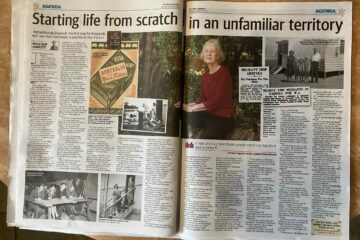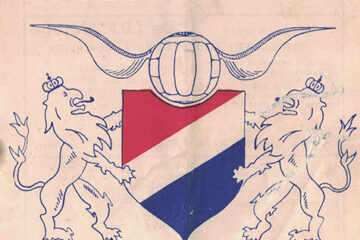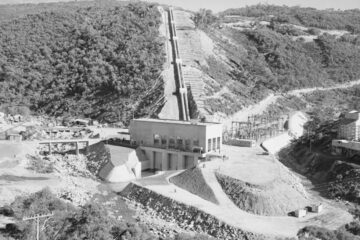In the spring of 1955, the Broekman family became part of the great wave of postwar Dutch emigration. That year, young cook Bert Broekman joined the Stoomvaart Maatschappij Nederland to work aboard the emigrant ship SS Zuiderkruis. Fatefully, the same ship carried his older brother Jan, sister-in-law Annie, and little nephew Henk, who were leaving the Netherlands to begin a new life overseas, following two brothers who had gone before them.
On 19 April, at Amsterdam’s Javakade, the family gathered for their farewell. For many Brabanders, who had rarely ventured beyond their province, this moment was overwhelming. Long ribbons of paper thrown from the ship to the quay stretched like fragile connections to those left behind. Handkerchiefs waved through tears, as parents, friends and neighbours struggled with the reality that their loved ones were gone for good. For Bert, the separation was temporary—his work would return him to Amsterdam in July. But for Jan, Annie and little Henk, it was a final parting from their homeland.
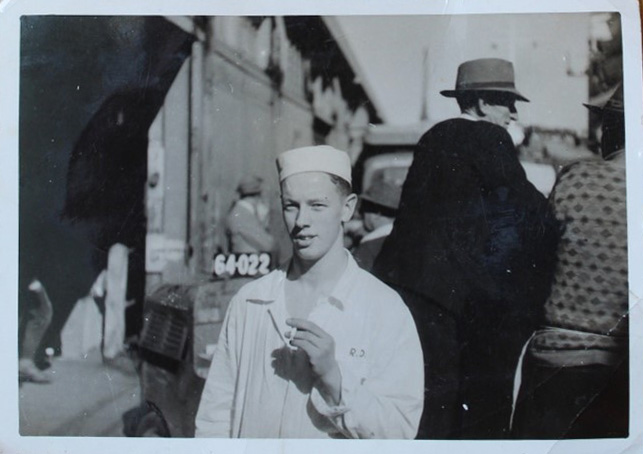
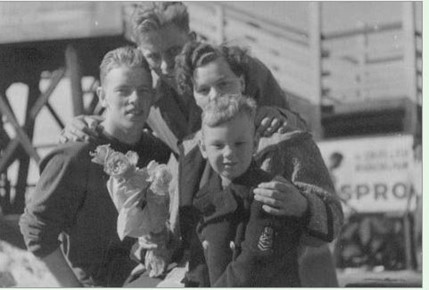
The SS Zuiderkruis was one of three former American troop transports—alongside the Groote Beer and Waterman—purchased by the Dutch government in 1946. Converted into migrant ships, they became lifelines to new opportunities for thousands of Dutch families. These were not luxury liners, but practical vessels carrying about 850 passengers each. Still, they offered a floating village with a barber, shop, hospital, cinema, and a galley where Bert worked long shifts preparing meals for the hundreds of hopeful emigrants.
The voyage reflected the spirit of postwar migration: a mixture of hardship and anticipation. Crossing the Atlantic, the Zuiderkruis made its first stop at Willemstad, Curaçao, before threading through the Panama Canal. Then came the long Pacific crossing to Tahiti—where, to the great disappointment of passengers, no one was allowed ashore due to a measles outbreak among children. For many, the weeks at sea felt endless, though new friendships, songs, and the warmth of shared Brabant traditions brought comfort.
At last, the ship reached Wellington in New Zealand, before continuing on to Australia. Fremantle marked a turning point: from there, the ship also carried out the repatriation of KNIL-Moluccan families and their children. Melbourne, for others, became the gateway to new beginnings in Australia.
The story of the Broekman family is just one among thousands, yet it captures the essence of a generation of Dutch emigrants who exchanged the certainty of home for the uncertainty of opportunity. The SS Zuiderkruis was more than a ship—it was a vessel of transformation, carrying families across oceans, across cultures, and across the threshold of their old and new worlds.
This is abstracted for the article in Dutch published by the Brabants Historisch Information Centre. The Dutch article also has more pictures in it.
Related personal stories
Read Letter from 1954 — an early account of the Broekman family’s migration story, told through the letters Tenne sent from his new life as a pioneering surveyor in Western Australia.
Read The Forgotten Bag — a light-hearted follow-up memory from the Broekman family, about a lost bag that travelled halfway around the world to be returned in Fremantle, Australia.
New Year in Perth -2000
Model of the MS Oranje
